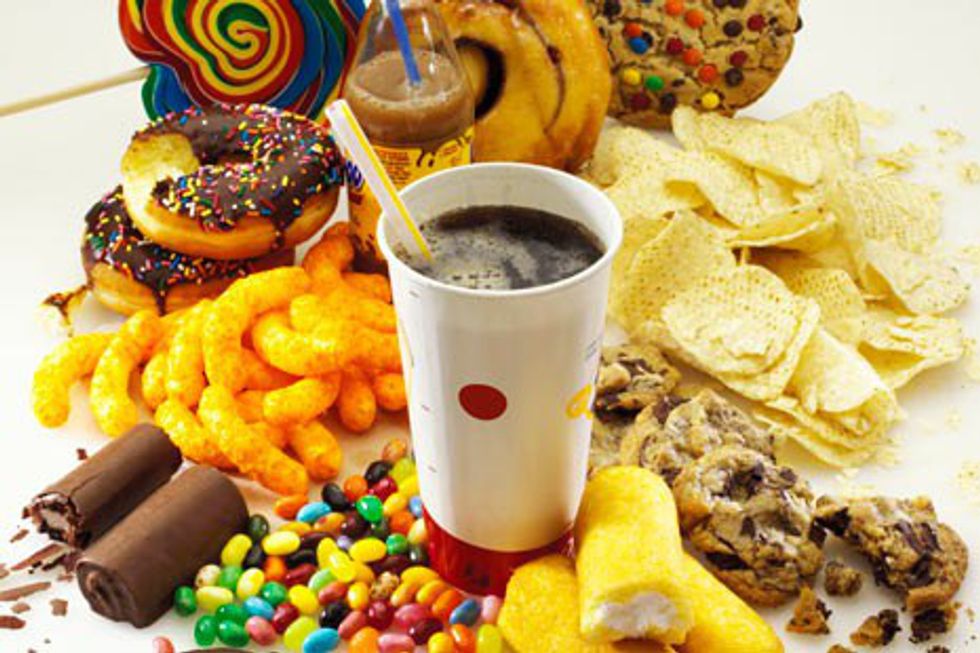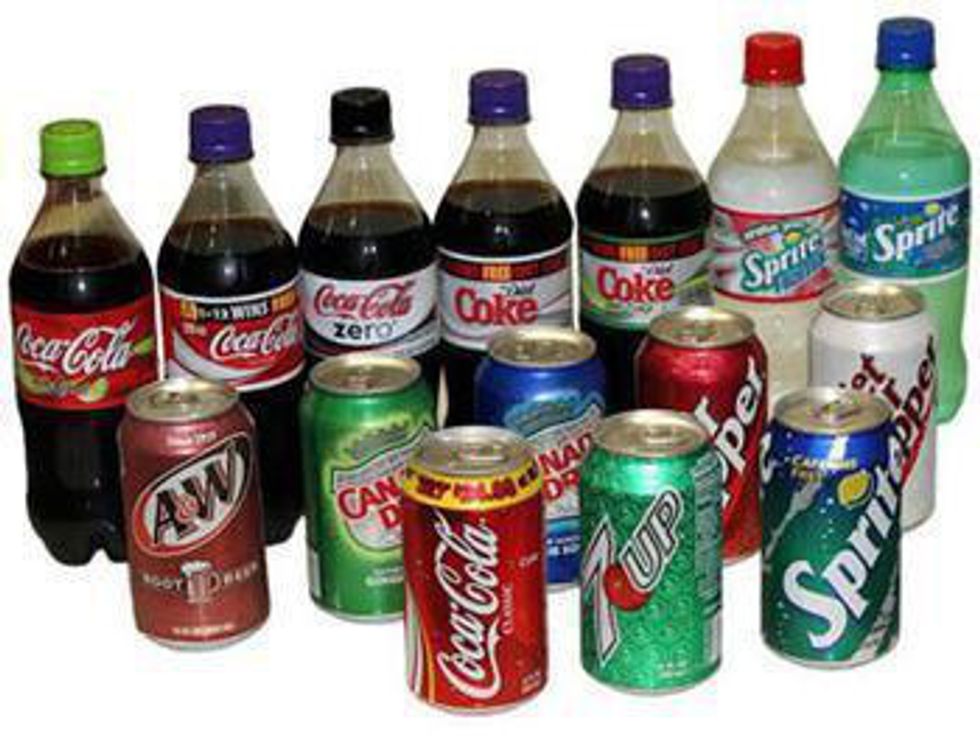Everyone knows that junk food is bad for you. But just how bad and why is something we often overlook. I mean, we all saw the McDonald's pink slime videos and yet they're still making a fortune off consumers who want to buy their burgers. We're obviously missing a piece of information here, and I want to fill that in.
So what is technically considered junk food? Wikipedia roughly defines it as "cheap food containing high levels of calories from sugar or fat with little fiber, protein, vitamins, or minerals." It's food that doesn't have nutritional value, but has tasty fillers. Chips, fast food, pastries, candy, and microwaveable TV dinners are all common culprits.
After eating a meal like this, your body reacts immediately. Some short term effects include:
-- Inflamed tissue (as if an infection were present)
-- Blood vessels constrict
-- Damaging free radicals are created
-- Fatigue
-- Blood pressure rises
-- Shortly after, you are hungry again due to the surge and drop in insulin
After five days of eating food without proper nutrition, your muscles' ability to oxidize glucose is disrupted. This is part of the process known as your metabolism (which also occurs in other parts of the body) and is very important in keeping you healthy. Normally your body will either store glucose or break it down, but if it is rendered unable to do so, you could be looking at type two diabetes, obesity, and other health problems.
One week of pop, cheese puffs, and french fries can actually damage your brain. According to "Brain, Behavior, and Immunity," one week can cause memory impairment and inhibit your ability to learn new things.
After four weeks of excess sugar, the balance of bacteria in your gut is thrown off, and your brain function deteriorates. Brain cells begin to have increased trouble signaling each other to remember things learned even before excess sugar was introduced into your diet. Permanent brain damage can be caused by this, eventually leading to dementia.
If your eating habits haven't been up to par for longer than this, you may be at risk for these long term effects:
-- Type two diabetes
-- Heart disease
-- Depression (especially in teens)
-- Kidney disease
-- Cancer of the digestive system
-- Liver damage
-- Obesity
According to the National Alliance for Nutrition and Activity, "your diet significantly contributes to four out of six of the top leading causes of death in the United States." That's insane. And with only 10% of Americans eating in accordance with federal guidelines for nutrition, that sounds like widespread suicide through ignorance. The leading cause of death in the US is heart disease. Heart disease is caused by eating too many saturated fats, which are found in meat, milk, butter, ice cream, and processed foods. Our diet is killing us.
The western diet is also contributing to our increasingly common problems with depression and anxiety. Too much sugar and refined grains had a negative affect on mental health after just four years, according to a study published in the American Journal of Clinical Nutrition.
If it's so bad for us, why do our bodies crave it? What makes it so addicting? Most obviously is the extremely high levels of sugar, fat, and salt found in junk food. Our body needs these things, so it reacts accordingly, but our body does not need it in the form of high fructose corn syrup and hydrogenated oils or in such large quantities. It's natural for us to crave things like salt; it's unnatural for us to find so much of it packed into one food item.
MSG or Monosodium glutamate is a common flavoring additive that makes cheap food taste better, although it's controversial because many people have allergic or severe reactions to it. MSG may also interfere with your natural appetite suppressant, which lets your stomach know you are full, letting you eat mass amounts of food.
Casein is another additive that makes junk food addictive. It's a protein compound extracted from cow milk and inserted into other things to serve as "the nicotine of food." It's what makes your hamburger buns taste sweet and your cheese so creamy. Casein breaks down slowly, causing digestive issues, (which is why you can get constipated after eating too much cheese) and has been compared to heroin in it's level of addictiveness. Food companies basically add flavoring to trick your tongue into believing it will hold nutrition (which is why you crave it) without actually having any.
Foods with too much sugar, salt, fats, or any taste additives release an unnatural amount of dopamine into the brain. Of course your brain "rewards" you with this feel-good chemical any time you eat, but the amount released is much higher for junk foods. You can build a tolerance for foods that release a lot of dopamine by decreasing the amount of dopamine receptors in the brain. This means you have to eat more of it to get the same satisfied feeling. This reward system in the brain is used for many natural bodily functions, and also many unnatural habits like cocaine or other drug use.
Food addiction is more common and more dangerous than you think. Ever tried to go on a diet, but failed within the first week? Want to cut out pop, milkshakes, fast food, red meat, but you just can't? Too much of anything is bad, and every addiction is deadly. Yes, even to junk food.
Because food affects your body immediately and is quickly digested out of your system, you're only as healthy as your last meal. But this is good news! It means that you can begin to repair the damage as quickly as you started it. What was the last thing you ate?

























